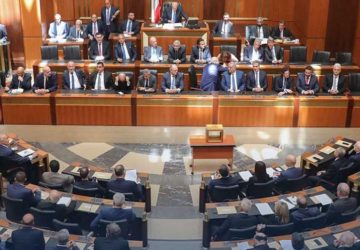Listen to the article
Everyone in Beirut is anticipating the visit of Amos Hochstein, top advisor to US President Joe Biden, who recently traveled to Israel to continue discussing ceasefire specifics in southern Lebanon and reach a long-term solution based on United Nations Resolution 1701.
Based on recent information, Hochstein is once again attempting to separate the trajectory of the war in Gaza from that in southern Lebanon. While he has made significant progress in Israel, he remains doubtful about achieving similar success in Lebanon, particularly with Hezbollah. The pro-Iranian party insists on tying any ceasefire along the southern border to a ceasefire in Gaza. Only then can discussions begin regarding arrangements for southern Lebanon, provided the issue of Hezbollah’s arsenal’s fate is left unaddressed, as it is considered non-negotiable. Some reports relay that both the Americans and Israelis have embraced this strategy, seeing any long-term solution along the Lebanese Israeli border as paralyzing Hezbollah’s arms, rendering it worthless both at military and strategic levels.
Furthermore, the Americans have noticed some changes among Lebanese officials. Caretaker Prime Minister Najib Mikati is at the forefront, as he is now convinced of the need to separate the trajectory of the war in Lebanon from that in Gaza. He believes that Lebanon’s losses across various levels, coupled with the pressure from the presence of displaced Syrians, require that Lebanon be placed on the path to recovery. This entails ending the war, electing a president and forming a new government to tackle all internal crises. Reportedly, Mikati has communicated this position to Hezbollah, but the pro-Iranian group has rejected it.
Moreover, Hochstein will once again convey to the Lebanese, both during his visit to Beirut and through communication with various officials, that the US will support Lebanon if the separation of the two war fronts is approved. The US will primarily focus on boosting the level of aid, both American and non-American, to the Lebanese army (LAF). In addition, Washington holds the authority to provide its partners, including the UK, the European Union and Arab countries, with the green light to secure almost a billion dollars to aid the army and empower it to procure the necessary resources and equipment for strong deployment in southern Lebanon.
However, Hochstein will also issue additional warnings about missing the opportunity to end the war in the South, which may be available now. Failing to do so could lead to further deterioration, translating into a comprehensive Israeli war against Lebanon, the consequences of which nobody, neither in Lebanon nor in Israel, knows.





